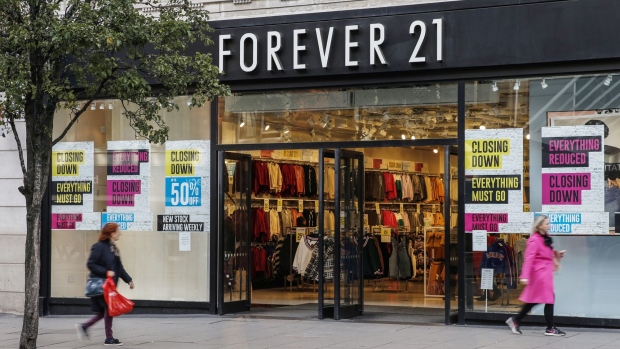Sep 15, 2020
Forever 21's bankrupt shell may stiff creditors of US$200M
, Bloomberg News

When Forever 21 Inc. sold itself out of bankruptcy this year, it left behind hundreds of millions of dollars in debt owed to suppliers, shippers and landlords. Now, as they seek to get repaid by the fast-fashion chain’s estate, it’s becoming clear that they’re in for some serious pain.
The U.S. Department of Justice’s bankruptcy watchdog is urging the judge overseeing the shell company’s case to convert it to a Chapter 7 liquidation from a Chapter 11 reorganization, estimating that high-ranking creditors owed some US$250 million will likely only get 17 per cent of that money back, or less than US$50 million, according to court papers.
That puts Forever 21’s case deep in the realm of so-called administrative insolvency, meaning the estate won’t have enough money to fully pay bills it incurred in bankruptcy. The plight of Forever 21’s creditors illustrates the risk of doing business with a bankrupt enterprise. Often painted as a controlled process, Chapter 11 bankruptcies can lead to significant losses if plans don’t pan out.
Other retailers have fallen into administrative insolvency in recent years. Fights erupted in the case of Toys ‘R’ Us in 2018 when advisers acknowledged the company couldn’t pay the US$450 million it owed to vendors and other creditors. In 2020 those creditors sued executives for continuing to purchase goods on credit during the bankruptcy while assuring suppliers it would emerge successfully from Chapter 11. Toys ‘R’ Us liquidated in 2018.
Forever 21 filed for bankruptcy last year amid high rents, a lagging international unit and changing consumer tastes. It closed more than 100 stores, but struggled to right its performance and attract the financing needed to exit from bankruptcy. A joint venture between Authentic Brands Group and two of its biggest landlords bought the retailer’s assets earlier this year.
The estate’s lawyers concede that the bankrupt entity is deeply insolvent, but oppose the U.S. Trustee’s attempt to convert the case to a Chapter 7, court papers show. The conversion would complicate its efforts to maximize the entity’s remaining value, including efforts to sell a warehouse for US$15.2 million and US$24.3 million of tax refunds under the CARES Act, according to court papers.
Bankruptcy attorneys for Forever 21’s estate didn’t immediately respond to an email seeking comment.
A hearing on the attempt to convert the case to Chapter 7 is scheduled for Sept. 16 at 11:30 a.m.
The case is Forever 21 Inc., 19-12122, District of Delaware (Delaware)